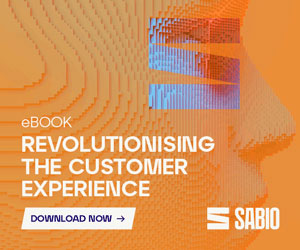Richard Gregory at Odigo explains that it’s obvious when someone has great communication or soft skills. Conversation flows, difficult subjects are made easier and customers feel heard and valued, like their needs have been taken into account.
It’s almost effortless for the person on the receiving end but the same is not always true for agents delivering this level of care and attention. How can contact centres support agents as they engage with these invaluable soft skills?
For some contact centre agents soft skills come naturally, for others it takes time and training to become second nature.
That isn’t the main problem, though. Soft skills require a high level of engagement and it quite simply takes more energy and concentration. Modern agents are pushed for time and multitasking is a given, so when more and more is expected what support can contact centres offer?
First Let’s Review What Soft Skills Are
Soft skills, interpersonal skills or ‘people skills’ are just that, skills: practical ways to approach interactions with others. They can facilitate so many aspects of working life, be it with customers, team members or superiors. Underpinning many of these skills is emotional intelligence.
This is the ability to recognise, process and understand your own emotions and those of others. It’s another teachable skill, a huge predictor of success and one which informs the application of all the soft skills in a contact centre agents toolkit.
What Are the Most Important Agent Soft Skills?
There are a great many soft skills, but when it comes to agents interacting with contact centre customers there are some that stand out.
Critical Thinking
This is the unbiased and objective evaluation of all the information at hand. For agents it means taking in facts and observations coming directly from the customer but also the available history.
It’s what fuels problem solving, conflict resolution and adaptability, allowing agents to analyse a situation and come up with positive next steps, a truly fundamental soft skill for contact centre agents.
Active Listening
This is a conscious effort not only to hear the words but to understand the complete message being communicated. It requires engagement and focus.
It is crucial for responding appropriately and avoiding slip-ups; for example, when a customer divulges personal painful information and a distracted agent does not respond at all or, worse, accidentally responds in a completely inappropriate way.
It is also how an agent gathers many of the details required for critical thinking. Interestingly, this is an area where natural language processing can support agents by picking up important verbal cues.
Empathy
As a soft skill for contact centre agents empathy is receiving a great deal of attention. For many, however, the difference between empathy and sympathy isn’t clear, just try a google search! It is universally acknowledged, though, that empathy requires understanding.
This makes it more powerful and functional than sympathy. Understanding the experience and emotions of customers enhances problem solving and can turn bad experiences into positive ones.
Patience and Self-Control
Patience is clearly an advantageous soft skill for contact centre agents, but it’s not always possible. This is why it’s linked with self-control. When things do become frustrating or upsetting, agents are able to resist acting on impulse.
Another application of self-control is to hold back the natural desire to share personal experiences. It’s not necessary for empathy and ultimately not what customers are looking for; they want resolution.
A Positive Attitude
The point here is quite simple: it’s a much better experience talking to someone who sounds like they are willing and able to help you and enjoy doing it!
What Makes Agent Soft Skills Hard Work?
Another term that is sometimes used to describe soft skills is non-cognitive skills. This is meant to make a distinction between intellectual skills and those more aligned with personality, temperament and attitude.
However, maybe don’t start an argument with a scholar about whether critical thinking is a non-cognitive soft skill.
The terms ‘soft’ and ‘non-cognitive’ are a bit misleading in that they conjure up images of ‘easy and effortless’ whereas in truth it takes concentration and discipline to use soft skills consistently, even more so when under pressure.
It’s only with time and experience that agents can fine-tune their soft skills in the contact centre environment.
At present, contact centre agents are under increasing strain to exhibit these soft skills. Soaring levels of vulnerability in the current cost of living crisis and greater awareness (2021 CCMA research) is placing regulatory pressure on contact centres and by default on their agents.
Add to this the fact that many agents themselves are vulnerable and the expectation for agents to invest even more energy in the skyrocketing volume of sensitive interactions and it seems a recipe for burnout and empathy fatigue.
Resilience has been pushed to the limit by recent history, personal stressors and industry expectations. As Martin Teasdale expressed in a GOOW podcast with Richard Gregory, there is an expectation that agents engage with empathy but remain detached, not taking things personally.
Expecting this level of mental fortitude and emotional intelligence under extreme pressure is not really realistic; there are much more helpful things contact centre leaders can do.
How Can Contact Centres Support Agent Soft Skills?
Of course wellbeing plays a huge role, in which rest, recovery and resilience are key elements. What is also needed, though, is a culture of openness and supervisors who lead by example, taking steps towards improving their own wellbeing. This can help embed a more wellness-oriented approach into contact centre culture.
There is also a role for technology as an enabler. If contact centre technology is tripping agents up rather than speeding them up something’s wrong!
One or more factors could be at play here: organisations can simply outgrow old technology, advances in customer expectations may mean new approaches are needed or possibly contact centre life is moving at such a pace that day-to-day tech frustrations are now limitations. How can technology make soft skills for contact centre agents easier?
The Role CCaaS Can Play
Contact Centre as a Service (CCaaS) solutions provide agents with the intuitive call handling and omnichannel capabilities from a unified dashboard to simplify interactions.
Then when it comes to engagement all the details are at hand, with 360-degree customer views and widgets for specific or targeted information.
Agents don’t need to divide their attention when engaging their soft skills as they would with multiple or outdated contact centre systems. Workforce management tools also maximise on the ability to rest and recharge by enabling flexible hybrid working and shift swapping.
Author: Guest Author
Published On: 3rd Oct 2022 - Last modified: 19th Feb 2024
Read more about - Guest Blogs, Martin Teasdale, Odigo



































